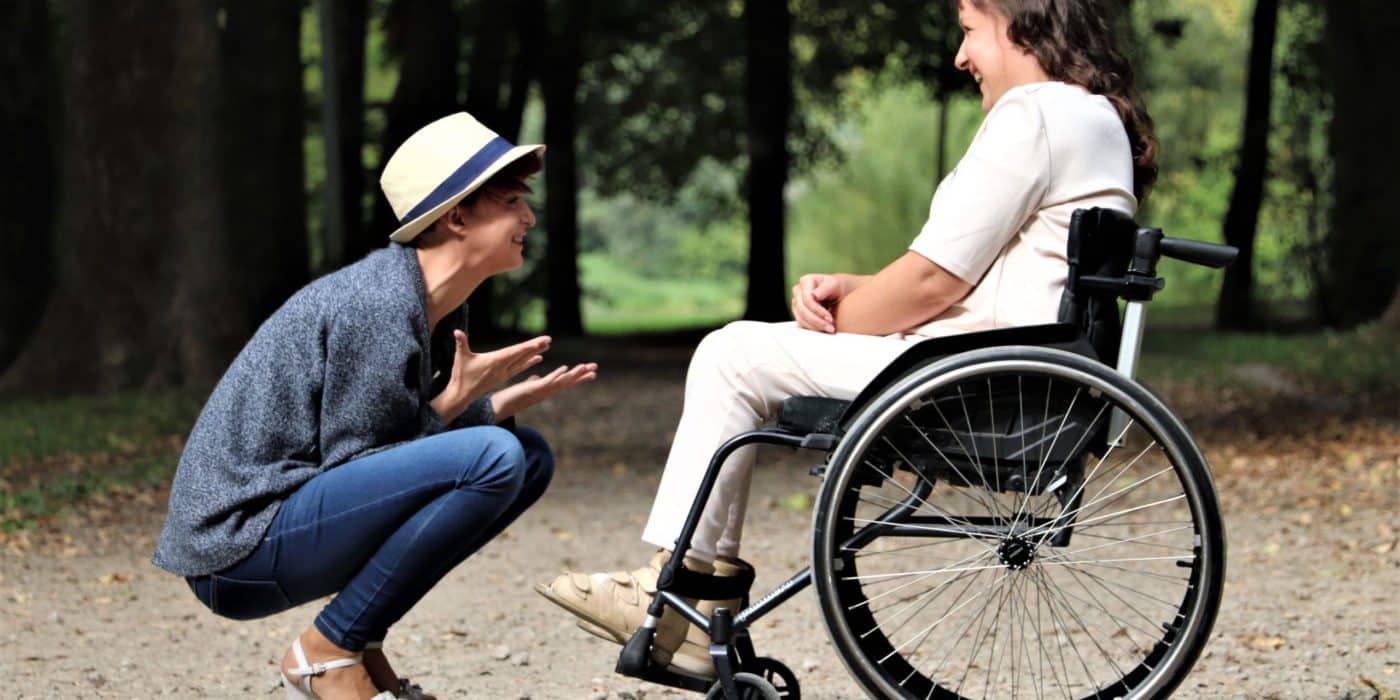The New Assessment Process Proposal
When Craig Wallace was 12, he was sent to a camp for children with disabilities, where despite his use of calipers and crutches, a physiotherapist forced him to walk up a hill as quickly as he could.When Mr Wallace fell, breaking his arm, that physiotherapist didn’t believe he was hurt, and due to his disability, it didn’t present with bruising and swelling. Over the next 10 days of the camp Mr Wallace was forced to continue walking, on crutches that rested under his arms, forcing his broken bones to keep moving.Finally when the camp ended 10 days later, Mr Wallace went home to his parents who took him straight to casualty, where doctors said it was one of the worst breaks they had seen.
Mr Wallace has been a disability activist for decades, but he hasn’t yet spoken out about this incident, even though it happened almost 40 years ago.
He is sharing it now to explain why some members of the disability community are deeply fearful of a new government plan to introduce an independent assessment process for access to the National Disability Insurance Scheme.”I have not sought out this individual, nor will I – but it has left me with a profound view about the limits of professionals with casual contact with people with disabilities to understand our conditions,” Mr Wallace said.
Stuart Robert, the minister responsible for the National Disability Insurance Scheme, says the new assessment system will create consistency and equity.
Last week Government Services Minister Stuart Robert, who is responsible for the NDIS, announced an overhaul of the system, implementing the recommendations from a review of the scheme by David Tune.
A major plank of the reforms is the introduction of independent assessments for people who want to enter the scheme, where instead of collecting documents and assessments from one’s own doctors, physiotherapists or other experts, a panel of independent assessors selected by the government will be used.According to the government, the new assessments will provide consistency and equity – the assessments will be made independently of government, but the bill will be paid by the National Disability Insurance Agency, removing a barrier that exists in the current system, where people must pick up the bill for their own assessments to get a plan and funding.”All Australians with significant and permanent disability deserve objective and unbiased access to NDIS supports, not just those who can pay the most for a report,” Mr Robert said on Saturday.
“This is consistent with the original intent of the NDIS as outlined in the Productivity Commission’s original recommendations in 2011 and confirmed by the Tune Review.”Mr Robert said the independent assessments would be a simpler, faster and fairer way to determine someone’s eligibility and would develop more flexible and equitable support packages.
The Tune Review found “the evidence provided by prospective participants and participants is diverse, and at times does not effectively assist the NDIA to make consistent decisions”.”This is influenced in part by confusion as to what evidence is required to support decision-making, particularly when a person has multiple impairments affecting their functional capacity or where their support needs are episodic or fluctuating.”
But some advocates have accused the government of “twisting” the recommendations, taking away the choice and control of the system, and moving to a medical rather than social model of disability.
Advocacy for Inclusion senior policy adviser Bonnie Millen is deeply concerned about the announcement, and points out there is too much ambiguity and interpretation about terms in the NDIS Act.”Standardised testing cannot measure the lives of people with a disability in a neat, packaged box,” Advocacy for Inclusion’s statement on the independent assessments said.
“People with disabilities have complex, multifaceted lives that require different elements of support and care. This model will render more people ineligible for the NDIS, with increased Administrative Appeal Tribunal appeals applications and burden on advocacy organisations.”Ms Millen is also concerned that people with disabilities won’t get access to what is said about them in the assessments prepared.
There is absolutely no way that a physio or allied health professional I do not know or trust is touching me or coming near me. Craig Wallace
Building trust with doctors and allied health professionals can take years, Mr Wallace said, and he is fearful that assessments with unfamiliar doctors will both be traumatic, and result in people with disabilities not being assessed properly, which could lead to people being denied access to the scheme, or not getting appropriate funding.
“There is absolutely no way that a physio or allied health professional I do not know or trust is touching me or coming near me,” he said.
Many women with disabilities and other people who have experienced violence and trauma feel the same.”A spokesman for minister Stuart Robert emphasised there was still a long process of consultation and co-design still to go, and more than 40 peak health and disability bodies from across the sector had already been consulted.
People With Disability Australia policy and advocacy director Romola Hollywood said it was concerning that the consultation was coming after the announcement, making it seem like it wouldn’t be a genuine consultation process.
“There’s still so many questions that need to be answered so we can work through this process,” she said.”People with disabilities who have undergone assessments through other schemes like workers compensation have found independent assessments have been very stressful.”



